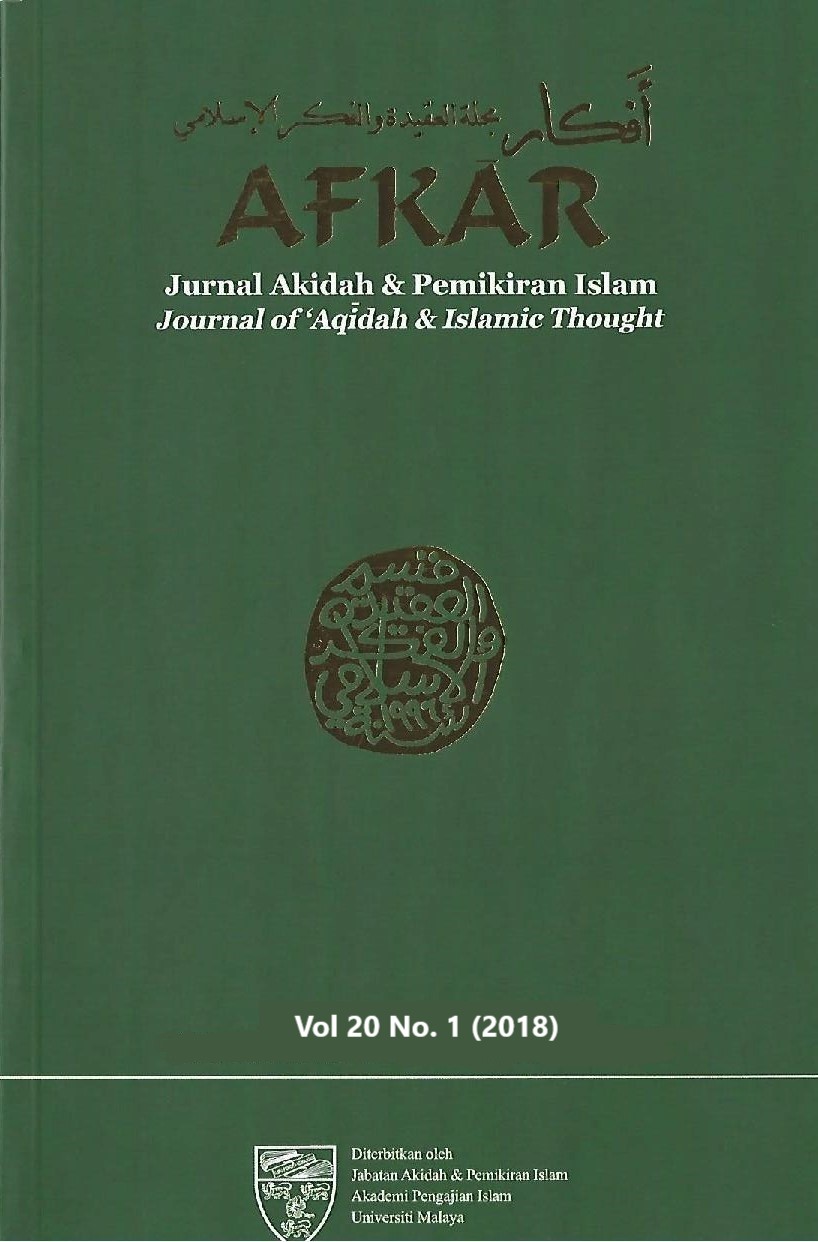Sumbangan Abu Talib al-Makki Terhadap Pembangunan Psikologi Insan Berdasarkan Maqamat Dalam Qut al-Qulub
A Contribution of Abu Talib al-Makki to the Development of Human Psychology Based on Maqamat in Qut al-Qulub
DOI:
https://doi.org/10.22452/afkar.vol20no1.4Abstract
The exact name of Abu Talib al-Makki is Abu Talib Muhammad Ibn ‘Ali Ibn ‘Atiyyah al-Harith al-‘Ajami al-Makki is one of the most famous Islamic scholars in Sufism. His conviction in Sufism is recognized by many scholars and Islamic figures including Abu Hamid al-Ghazali. This is proven by the result of his writing that work of Qut al-Qulub is a masterpiece in the field of Sufism that becomes as the main reference in this discipline. The work highlights the spiritual elements and spiritual experiences systematically in an effort to develop man’s spiritual, among which is the discussion about the concept of maqamat. Maqamat generally denotes the meaning of a position or spiritual level that requires effort to achieve and move from one maqam to a higher maqam in the spiritual journey of a person. These passion and effort actually contain high spiritual values and is found to be capable of solving problems related to human psychology. Therefore, this article will discuss and examine the concept of maqamat which has been discussed by Abu Talib al-Makki in his Qut al-Qulub as an element of Islamic psychotherapy in order to develop human psychology. Excellence in human psychology can contribute to the well-being and happiness of the individual’s life, society and the environment as the caliphs on this earth.









